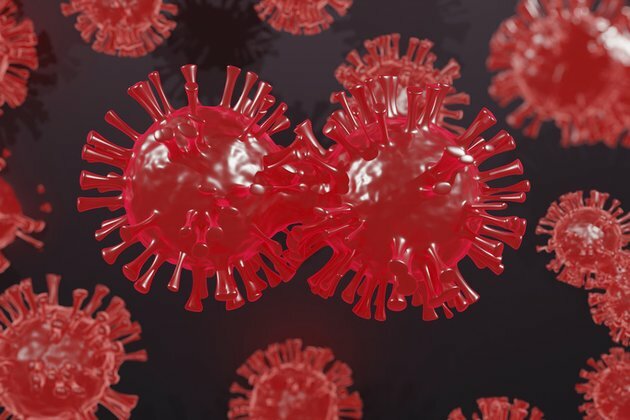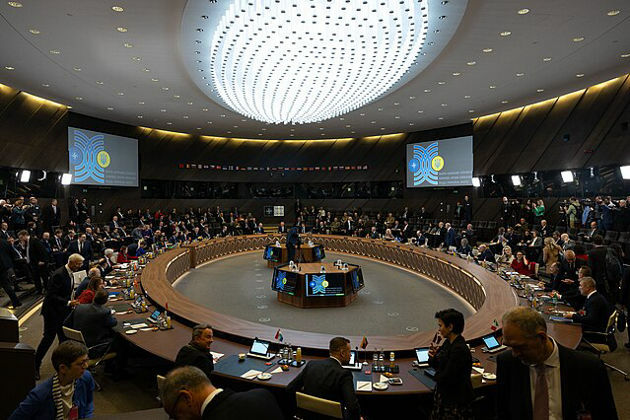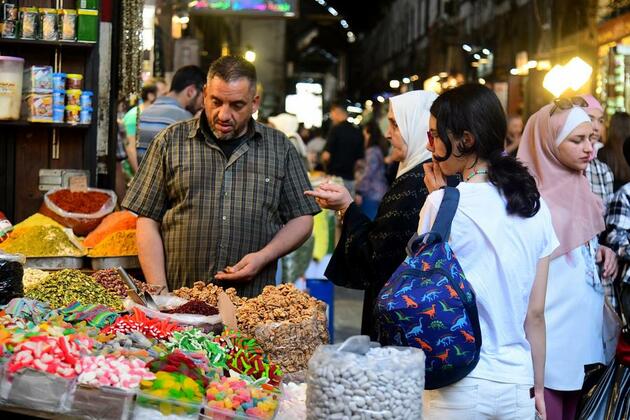Spiky death: how long will Covid remain a threat
RT.com
20 Nov 2021, 19:42 GMT+10

Covid-19 variants keep emerging in different parts of the world, causing experts to ask how long the pandemic will last, and how effective the current methods of protection really are.
Since the pandemic started in 2019, people have referred to the disease which has paralyzed the world simply as 'coronavirus'. Now, in 2021, when we talk about it, we mean not just the original variant, but also its numerous mutations.
In May, the WHO decided to label the key variants with Greek letters. Since then, the Delta variant has been proclaimed the predominant strain across the world, and now we have titles that look like codes to detail the differences between variants. Last month, the UK was put on high alert over a fast-spreading Delta AY.4.2 variant. This week, Norway reported finding one more version of the Delta strain - AY. 63. The country's experts suggest it's not more dangerous than the Delta mutation itself. Meanwhile, another Covid variant, discovered in France (B.1.640), brought the researchers an unpleasant surprise: they said they'd never seen mutations like it.
Professor David Dockrell, from the Center for Inflammation Research of the University of Edinburgh, described to RT the reasons for the constant mutation of the coronavirus. "The areas in the virus that are most likely to change are those that come into contact with what we call 'selective pressures' - or factors that make them need to change," he explains. "So, a version of the virus which mutates and changes to give it a selective advantage to escape from the immune system is more likely to prosper and become a dominant strain."
That's how it works: The part of the virus many of the immune responses (or antibodies, T-cells etc.) are responding to is called the spike protein (or the S-protein). So, the virus tries to change it in order to survive.
"We know that a variety of different viruses are able to mutate and change when exposed to the selective pressure of the immune system, whether it would be the human immune system or other species in which these viruses have evolved," Prof. Dockrell says. "And of course, we've seen it most clearly with HIV, which is particularly good at changing and evolving. It does something called 'reverse transcription' - it copies material in the reversed direction from DNA to RNA."
Covid is still seemingly running faster than humanity's efforts to curb it, but Prof. Dockrell has some good news. "The coronavirus - and viruses like it - are not as able to make these changes. They are going to do it to some extent, but they are not going to be as successful as retroviruses and HIV."
Now, unfortunately, we are still in a phase where Covid19 can continue to evolve and change. It's not time to panic, though, because across the world various ways to adapt the current anti-Covid strategies are already in place. First of all, people should keep getting vaccines - maybe receiving slightly altered booster doses, Prof. Dockrell suggests, "in a way, that we, after all, have to do with influenza, by providing a seasonal influenza vaccine and changing it every year."
"And maybe we have to keep changing some of the treatments like these new monoclonal antibodies against the virus, because they also may be limited by the emergence of a mutation of the virus evolving the S-protein," he adds.
Sounds promising - but won't it become a never-ending race against constantly emerging mutations?
Hopefully not. According to Prof. Dockrell, there are parts of viruses that scientists call 'conserved areas'. With time, vaccines and monoclonal antibodies will target these areas, which the virus finds very hard to change. "Clearly, the direction of travel is to develop either vaccine responses that affect more different kinds of virus, or these 'monoclonal antibodies' that we could use to prevent or treat infection, that they will target more conserved areas and therefore will be less limited by the ability of these virus to evolve and change," he concludes.
(RT.com)
 Share
Share
 Tweet
Tweet
 Share
Share
 Flip
Flip
 Email
Email
Watch latest videos
Subscribe and Follow
Get a daily dose of Greek Herald news through our daily email, its complimentary and keeps you fully up to date with world and business news as well.
News RELEASES
Publish news of your business, community or sports group, personnel appointments, major event and more by submitting a news release to Greek Herald.
More InformationInternational Business
SectionTrump-backed crypto project gets $100 million boost from UAE fund
LONDON, U.K.: A little-known investment fund based in the United Arab Emirates has emerged as the most prominent public backer of U.S....
Russias largest bank delivers pessimistic 2026 forecast
Dwindling demand for loans due to high interest rates is hurting Sbers profits, its CEO has warned Russia's largest bank, Sber, is...
PM Modi's 5-nation visit: Vaccine development among focus items in Ghana; discussions in Namibia to touch on UPI expansion
New Delhi [India], June 30 (ANI): Prime Minister Narendra Modi's upcoming five-nation tour, beginning on July 2, will see significant...
India to set up vaccine hub in Ghana, expand UPI in Namibia during PM Modi's multi-nation tour
New Delhi [India], June 30 (ANI): Prime Minister Narendra Modi's upcoming five-nation tour, beginning on July 2, will see significant...
Cash disappearing in China Le Monde
Mobile payments are dominant in the Asian country, while the traditional means of exchange has dwindled to near extinction, the outlet...
Pakistan government increases gas prices
Islamabad [Pakistan], June 30 (ANI): Pakistan's Oil and Gas Regulatory Authority (OGRA) announced a gas price hike for the majority...
Mediterranean
SectionApple allows outside payment links under EU pressure
SAN FRANCISCO, California: Under pressure from European regulators, Apple has revamped its App Store policies in the EU, introducing...
Alliance eyes major military buildup to counter Russia
THE HAGUE, Netherlands: NATO is pressing ahead with a sweeping new defense spending target, calling on all 32 member nations to commit...
U.S.-WASHINGTON, D.C.-WHITE HOUSE-PRESS BRIEFING-SYRIA
(250630) -- WASHINGTON, June 30, 2025 (Xinhua) -- White House Press Secretary Karoline Leavitt speaks during a press briefing at the...
Trump signs executive order terminating Syria sanctions: White House
U.S. President Donald Trump on Monday signed an executive order that removes sanctions on Syria while maintaining sanctions on Bashar...
UN chief alarmed by new displacement orders amid hostilities in Gaza
OCHA said most of Gaza remains under displacement orders, and people are being pushed into overcrowded areas where thousands of others...
India extends warm greetings to Congo on their Independence Day
New Delhi [India], July 1 (ANI): External Affairs Minister S Jaishankar on Monday extended warm wishes to the government and people...













